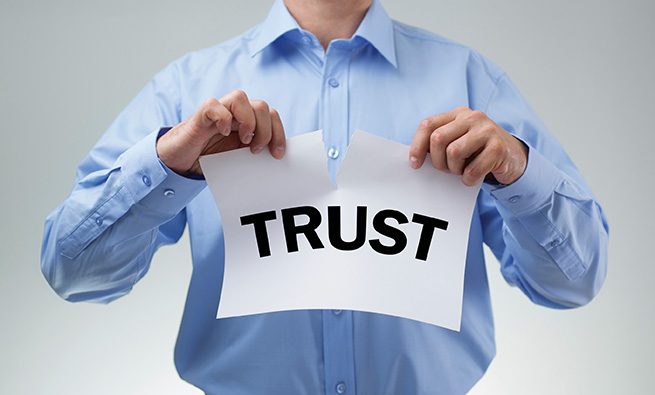This year’s PRAXIS was all about trust and the theme was – Building Trust is at the Core of Public Relations.
What does trust really mean?
Growing up, we spent our childhood on the streets, in neighbour’s homes and played in parks till the sun went down and would go back only when the curfew cut off time arrived, or our parents called us back. Our fear of strangers was not at paranoia levels back then. People trusted people far more, the corruption had not reached crazy levels and the greed quotient to acquire was also low. Businesses and brands enjoyed far higher levels of trust and people bought from and transacted business with people that they placed their faith in. Today we don’t trust like we used to for sure. Trust meant faith in people to do the right thing.
The understanding of trust can be simple or complex, it’s how you choose to look at it, but there is no debate on the fact that for you or your business to succeed, you need trust to back you all the way. Like Richa Chadda, in her address said, “Trust is the most expensive commodity as it takes forever to build, but only a moment to shatter…”
Studies have proven that businesses that can establish trust with all stakeholders both internal and external, have far better chances of success and excel overall.
It’s been established undoubtedly that trust in context of brands or organisations is directly related to behaviour and culture. So is the case with individuals and this week in Forward Leap, we are looking at what we can do as individuals to increase the score of our own trustworthiness quotient. You need to build a personal culture of trust consciously and how do you do that?
Trust and ethics run parallelly and if you are trust-worthy it equates to you being ethical or vice-versa and it’s about always, in every situation, doing the right thing.
Trust in leadership and being a trust-worthy leader are worth investing in as organisations want to invest in leadership teams that can garner and nurture trust.
From all my years of learning, trust is about creating a narrative that is honest and authentic, steeped in transparency. Here are some ways to look at building and crafting a narrative of trust:
- Credibility – Knowledge and expertise combine and link to the ability of the person, so invest in deep learning and knowing the finer nuances of your subject in depth.
- Reliability – Always deliver on your word or promise, meet deadlines, keep checks on quality of work and get your hands dirty if you need to, but get the job done.
- Respect – Treat everyone with a lens of equality and equity and build your teams on fair ground without discriminating or working with bias.
- Collaboration – Work with people as individual contributors are no more the need of the hour, you need team players who can work with diverse teams and deliver.
- Transparency – Being open and honest and staying transparent always helps and owning up to failure and mistakes and taking on responsibility for actions also builds credibility.
- Truth and honesty – Always stay honest and speak the truth, there is no currency more valuable than that of truth to build trust.
Trust builds trust and it works like a full circle, so set a high trust score and work towards reaching it in all transactions.
When you create a circle of trust for yourself, it also extends to the organisation that you work with and the teams you influence.
Why do we trust some doctors over others, why do we trust some restaurants over others and some brands over others, because they have established a feeling of reliable comfort within us with regard to their fields and this lets us believe them and take their counsel or do business with them or choose them over others and this is what we must apply in our own contexts.
All of this may seem basic, but leadership and management is about going back to the basics and doing it right and getting.



Be the first to comment on "The Personal Trust Deficit"